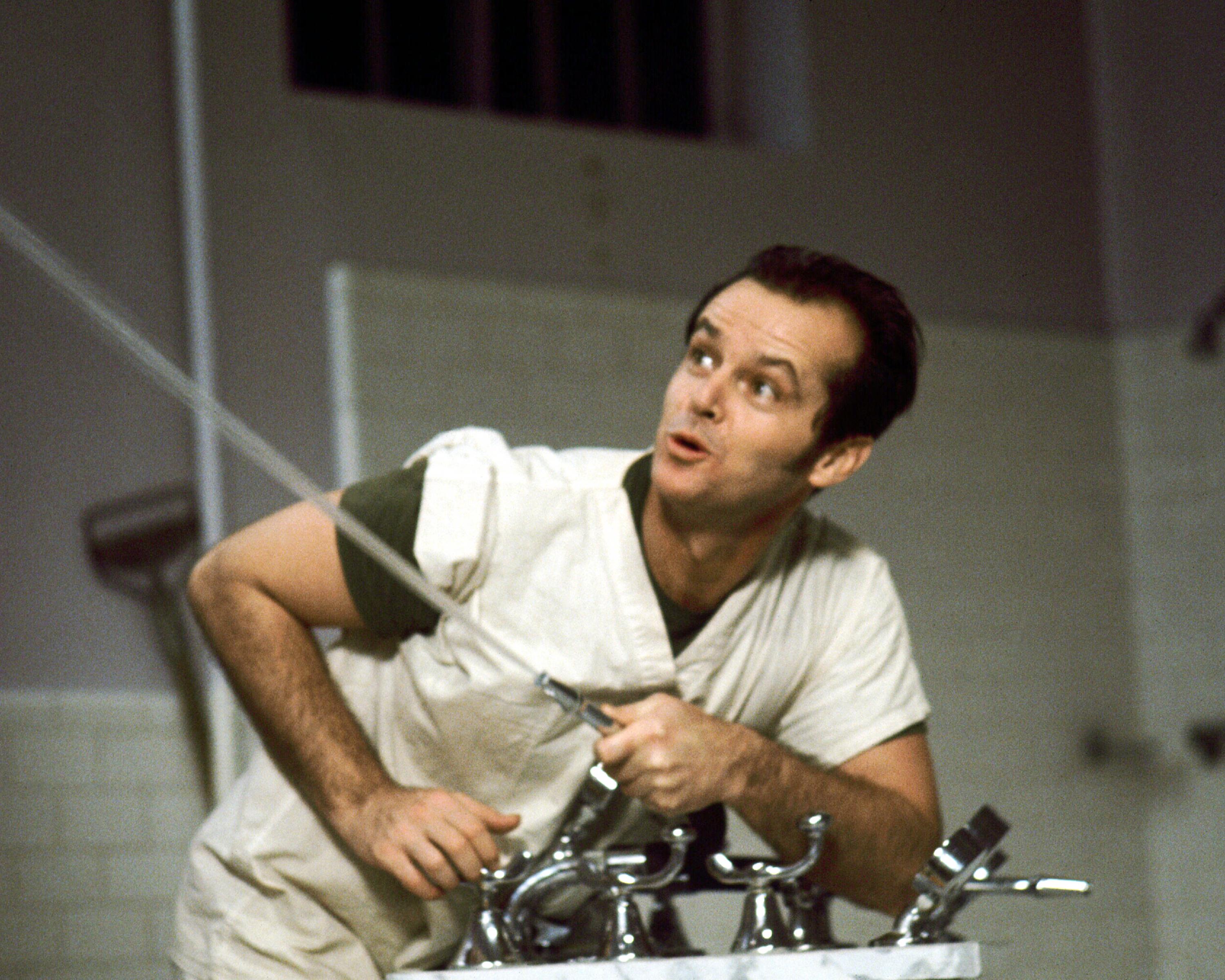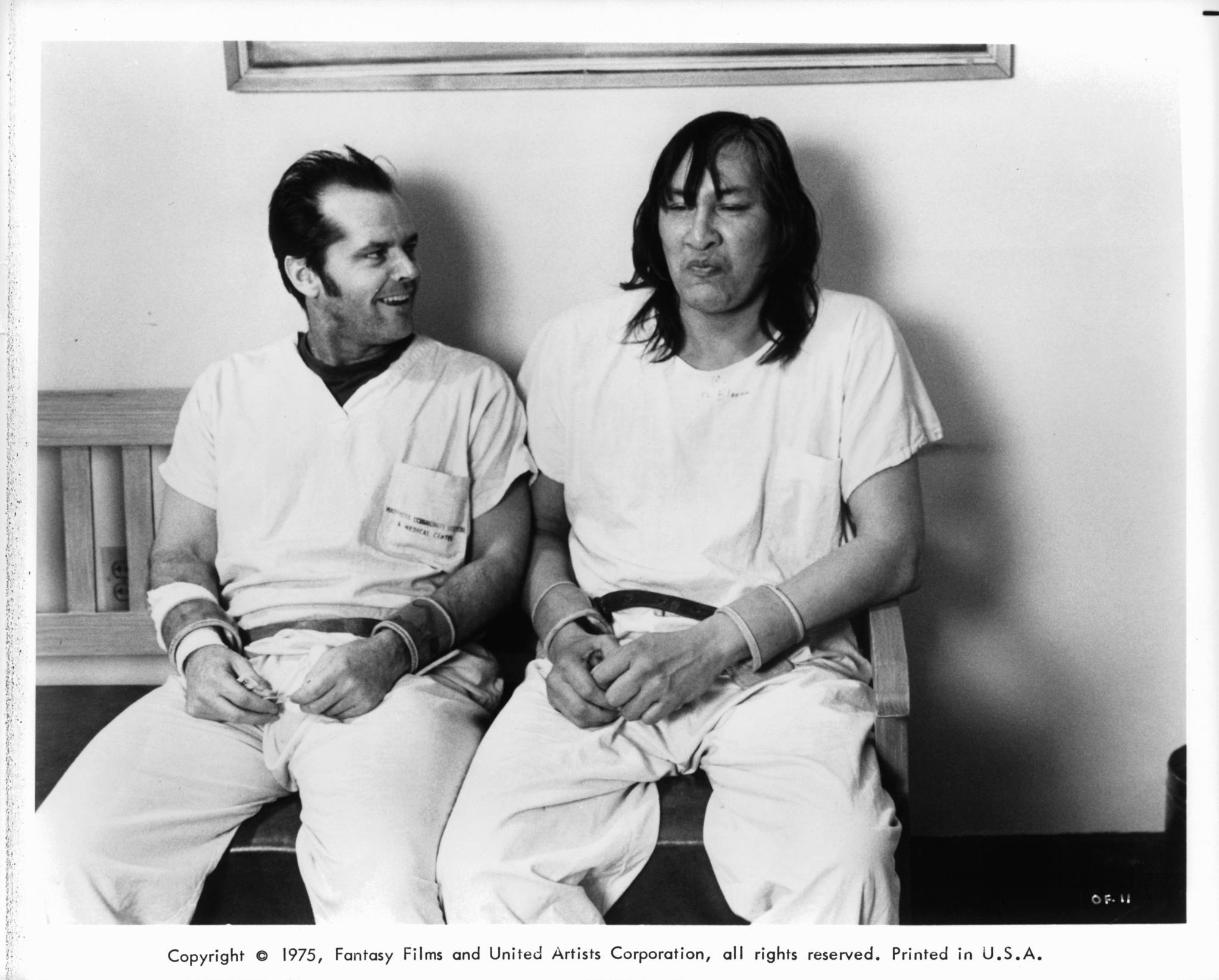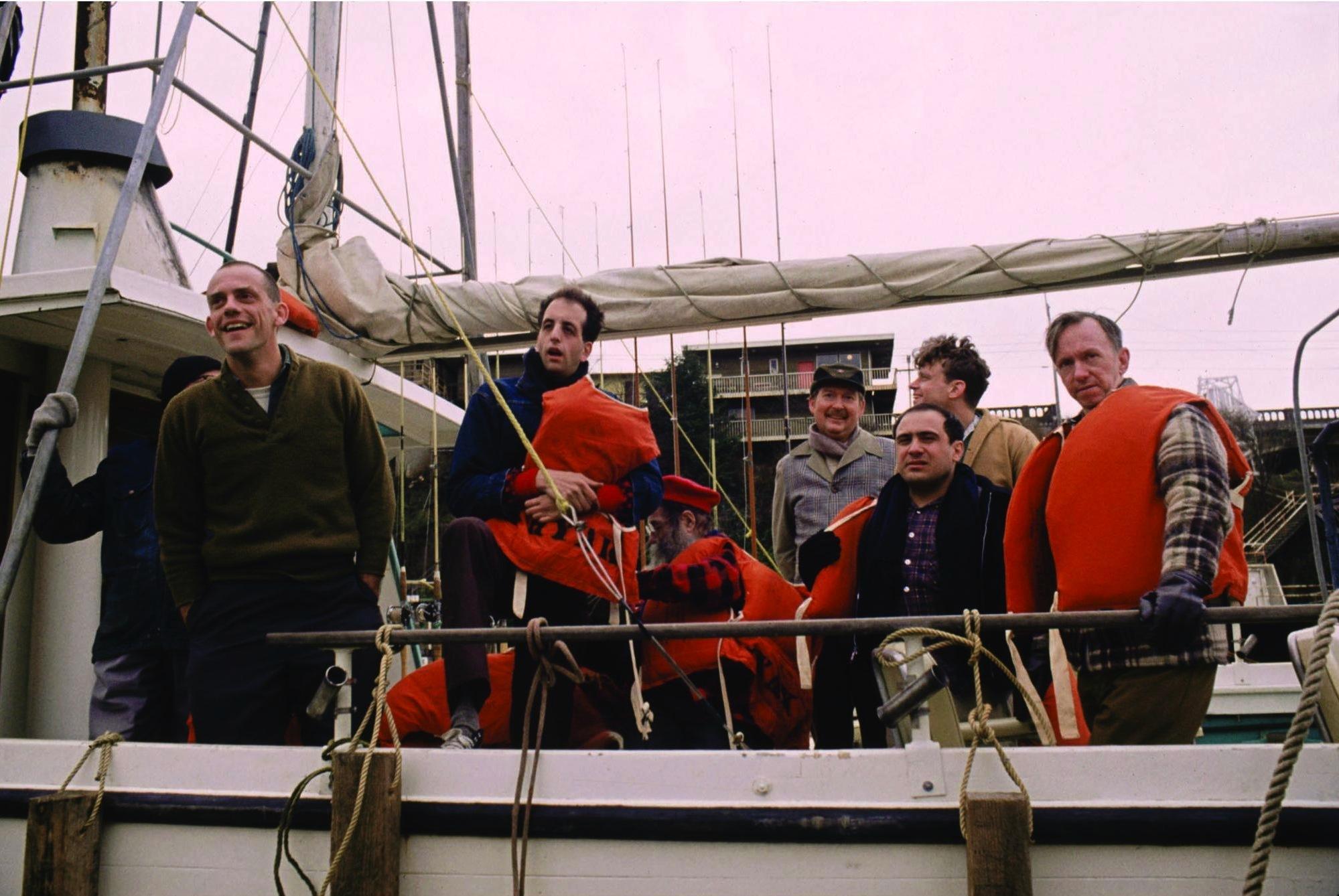Synopsis
In 1963 Oregon, the rebellious and spirited Randle Patrick "Mac" McMurphy finds himself transferred from a prison farm to a mental institution after ruffling feathers by constantly challenging authority. Though he shows no obvious signs of insanity, Mac thinks he can trade a sentence of hard labor for what he imagines to be the laid-back atmosphere of the hospital. However, he finds himself in the hands of Nurse Mildred Ratched, a woman whose authoritarian grip crushes spirits more than cures them.
Mac discovers that the patients are far more intimidated by Ratched’s passive-aggressive tactics, strict routines, and subtle abuses than engaged in their own recovery. Tall among the group are Billy Bibbit, plagued by insecurities; the volatile Charlie Cheswick; delusional Martini; paranoid but perceptive Dale Harding; disruptive Max Taber; and the silent “Chief” Bromden, presumed deaf by everyone. Inspired to challenge Nurse Ratched's oppressive rule, Mac positions himself as their spirited leader.
The power struggle between Mac and Ratched gains momentum. Her ironclad control over the cigarettes, their communal currency, becomes symbolic of her dominance. Mac pushes back, rallying the patients to bargain and vote to make decisions that will shift the ward's dynamics. His bold actions inspire glimmers of hope and autonomy among the patients, stirring a sense of rebellion.
In a bold act of defiance, Mac hijacks a hospital bus, taking his newfound friends on a whimsical fishing excursion, chanting encouragements that awake the possibility of a life beyond their walls. The escapade galvanizes the patients, their spirit of defiance awakening like an unfolding dawn. Yet, the reality of the situation soon sets in, and Mac learns that his stay might be extended indefinitely by Ratched and the unsympathetic doctors.
The mounting tension culminates in a brawl, leading Mac and the ever-silent Chief Bromden to find surprising camaraderie in the therapy room. Their bond is deepened when the Chief chooses to reveal his hidden layers, spurred by Mac's vivacious spirit. Despite the repercussions that come with standing up to Ratched, Mac’s antics continue to not only entertain but also empower those around him.
As their clandestine rebellion reaches its peak, McMurphy orchestrates a clandestine late-night party, flooding the oppressive ward with laughter, illicit drinks, and a taste of freedom. The revelry, however, eventually leads to unintended tragedy, serving as a poignant reminder of the stakes involved in defying oppression. Without the benefit of foresight as the ward awakens to the aftermath, Nurse Ratched's cruelty crosses a line, setting off a chain reaction of dire consequences.
The aftermath of their latest escapade permanently alters the ward's dynamics, ultimately leading to a dramatic climax. Though Mac's fate appears sealed, his indomitable spirit has ignited a change that no amount of rules can suppress. Under Mac’s influence, Chief Bromden finally finds the courage to seek his own freedom, and in doing so, leaves behind a powerful legacy of liberation and hope.
Argument
The narrative of deftly explores themes of authority, individuality, and the human spirit through the microcosm of a 1963 Oregon mental institution. The protagonist, Randle Patrick "Mac" McMurphy, portrayed by Jack Nicholson, is a non-conformist who finds himself transferred from a prison farm to a psychiatric ward. This shift in setting—from a place of physical bondage to one of mental oppression—sets the stage for the film's exploration of the boundaries of sanity and control.
McMurphy enters the institution not due to overt signs of mental illness but to escape the backbreaking labor of his previous imprisonment. Yet, in a sharp twist of irony, he quickly discovers that this new environment is governed with an iron fist by Nurse Mildred Ratched, played by Louise Fletcher. The institution operates not as a sanctuary of healing but as a mechanism of suppression. , enforcing her authority through subtle psychological manipulation rather than overt aggression. Her dominance is reinforced by her use of humiliation and dehumanizing medical procedures that reduce patients to mere shadows of themselves.
Upon his arrival, McMurphy quickly assimilates himself as a leader among the patients. His fellow inmates—each carrying their own psychological baggage—include Billy Bibbit, a nervous boy beset by a stutter, Charlie Cheswick, prone to childlike tantrums, Martini, haunted by delusions, Dale Harding, a paranoid intellectual, Max Taber, antagonistic and coarse, Jim Sefelt, and "Chief" Bromden, a towering Native American believed to be deaf and mute. McMurphy’s influence disrupts the ward's status quo, which had been so carefully curated by Nurse Ratched.
The film's core conflict emerges from the budding battle of wills between McMurphy and Ratched. McMurphy's daring spirit invigorates the patients, challenging Ratched's regime by questioning its efficiency and authority. Notably, McMurphy’s theatrical attempt to lift a mammoth hydrotherapy console signals his protest against the institution’s oppressive constraints. Though he fails, his effort speaks volumes—the lament “But I tried goddammit. At least I did that,” reveals a profound assertion of agency in a place designed to strip it away.
This rebellion intensifies when McMurphy absconds with a hospital bus, commandeering a fishing excursion that inspires the patients to see themselves in a new light. The adventure is punctuated by his declaration: “You're not nuts, you are fishermen!” This momentary taste of freedom highlights the institutionalized denial of self-determination experienced by the patients. However, the ephemeral nature of this freedom is shattered when McMurphy learns the scope of Nurse Ratched’s power—his confinement can be prolonged indefinitely, tightening the noose around his newfound autonomy.
As tensions mount, Ratched's tyrannical grip manifestly thickens. Her punitive group therapy sessions, designed to shame and erode the men's spirits, culminate in a fracas between McMurphy, Cheswick, and the Chief, resulting in their receipt of Electro-Convulsive Therapy. Yet, McMurphy's indomitable spirit refuses to be extinguished by such measures. His gleeful, theatrical return to the ward, feigning weakness before exuberantly resuming his charismatic antics, serves as a testament to his resistance.
McMurphy’s tenacity faces its gravest test as he orchestrates a grand escape. He invites Candy and Rose, along with illicit substances, into the institution, facilitating a night of revelry that shatters the ward's stifling discipline. The ensuing chaos is a direct affront to Nurse Ratched's authority. Significantly, Billy Bibbit's triumphant instance of speaking without a stutter, post his intimate encounter with Candy, underscores the therapeutic potential of McMurphy's approach versus the repressive regime of Ratched.
The celebration is short-lived; Nurse Ratched's morning discovery brings the festivities to a halt, her threat to disclose Billy’s actions to his mother devastatingly reinstates his insecurity. Tragically, this results in his suicide, a profound moment that underlines the destructive power of Ratched's manipulative coercion. McMurphy's ensuing outrage—attempting to strangle Ratched—represents the climax of his rebellion, yet it critically signifies the limits of his influence within this brutal system.
The film’s concluding act delivers a stark resolution to McMurphy’s struggle. In her recovery, Nurse Ratched is a diminished figure, both physically and vocally. The power dynamics within the ward shift as the rumor circulates that McMurphy has heroically escaped his oppressive confines. However, the Chief's revelation provides a poignant reality—McMurphy’s lobotomized state renders him a ghost of himself, prompting the Chief's compassionate decision to free McMurphy from his vegetative existence. This act, both merciful and liberating, serves as the Chief’s entry into reclaiming his agency.
Ultimately, the Chief’s successful execution of McMurphy’s escape plan—using the hydrotherapy console as a means to break free—stands as a powerful symbolic victory over the institution’s oppressive grip. In escaping, he embodies the indomitable spirit McMurphy ignited within him, promising the lasting impact of McMurphy’s defiance against Nurse Ratched’s authoritarian rule. The film's exploration of individual resilience, juxtaposed against institutional control, creates an evocative commentary on the human condition and the eternal quest for self-determination.
Cast

Jack Nicholson
R.P. McMurphy

Louise Fletcher
Nurse Ratched
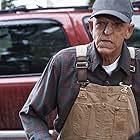
Michael Berryman
Ellis

Peter Brocco
Col. Matterson

Dean R. Brooks
Dr. Spivey

Alonzo Brown
Miller

Scatman Crothers
Turkle

Mwako Cumbuka
Warren

Danny DeVito
Martini

William Duell
Sefelt

Josip Elic
Bancini

Lan Fendors
Nurse Itsu

Nathan George
Washington

Ken Kenny
Beans Garfield

Mel Lambert
Harbor Master
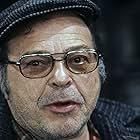
Sydney Lassick
Cheswick

Kay Lee
Night Supervisor

Christopher Lloyd
Taber
Multimedia


